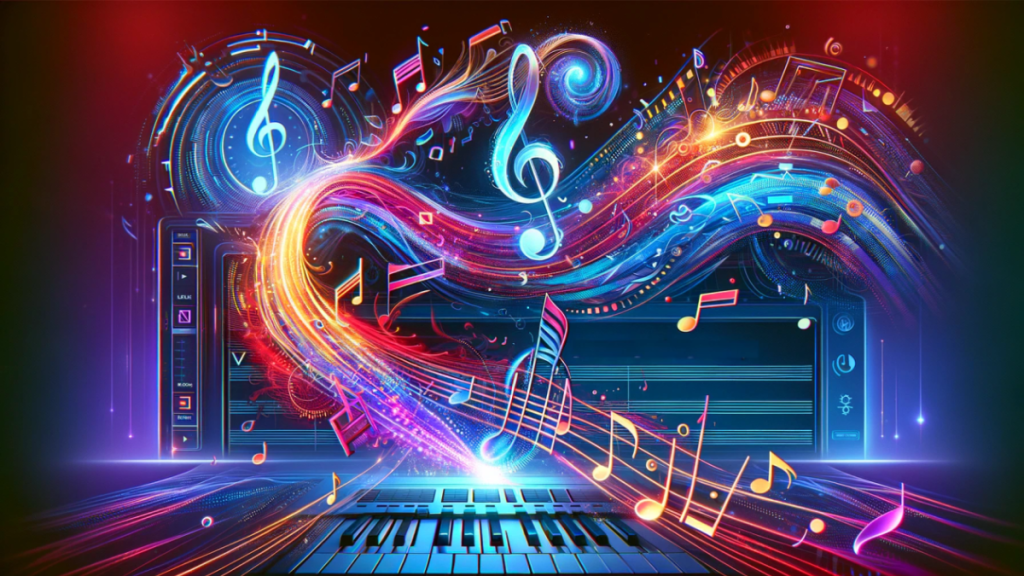AI won’t replace all music producers, but it can handle repetitive tasks like beat-making, sound design presets, and genre mimicry. That means producers using AI will move faster than those who don’t. But creativity, feel, and human judgment? Those still belong to people.
AI Music Studio or Song Generator also suggest chord progressions and structure based on genre or mood. Some even generate entire compositions from a short text description.
What Do Music Producers Actually Do?
They’re more than button-pushers. A producer shapes the sound. They decide on tempo, tone, rhythm, and emotion. They work with artists, guide the direction, and make the final call on what stays and what goes.
In a way, they’re translators. They take an artist’s ideas and turn them into something people want to hear. From deciding which synth to use to tweaking the silence between notes, every decision adds up.
What Can AI Music Production Tools Do Today?
They create loops, generate melodies, adjust pitch, and even mix tracks. Tools like Soundful, AIVA, and Amper Music are known for turning text prompts or mood selections into full instrumental tracks, you can try Imagine.art.
But they’re limited to pattern recognition. They remix, not invent. They can mimic popular styles, but they don’t invent new ones.
And they don’t know if your chorus hits too early or if your bridge lacks soul.
AI for Beat Making: Is It Better?
AI can generate beats fast, but it lacks taste. You get quantity, not custom style. For YouTube background music? Sure. For a Kanye-level album? Not yet.
AI beat makers shine when:
- You’re prototyping
- You need filler instrumentals
- You’re low on time or budget
They fall short when:
- You need uniqueness
- You want subtle emotional shifts
- You’re building long-form storytelling
Let’s be clear—beat-making isn’t just tapping buttons. It’s sculpting sound. It’s knowing when to swing the rhythm slightly off-grid to make it bounce.
And no AI understands regional vibes, lived experiences, or cultural nuances the way a human does.
AI vs Human Music Producers: A Real Comparison
AI excels in speed and scale. Humans win in taste and storytelling.
An AI can build 20 drum loops in 60 seconds. A human might spend 2 hours crafting one. But that human loop might be the hit.
A producer brings vision. They listen to rough ideas and imagine what it could become. That kind of thinking is hard to automate.
Include anecdote: Grammy-winning producer Oak Felder once said he spent 5 days adjusting one snare. No AI would ever do that.
There’s also trust. Artists don’t want to vibe with an algorithm. They want to vibe with someone who gets them.
Should Producers Use AI?
Yes, if they want to save time. No, if they think it replaces feel. The best producers use AI to handle the boring parts – not the creative ones.
Think of it like a calculator. It doesn’t solve the problem for you. It just makes the math faster.
It’s like using spellcheck. Helpful, but you still have to write the story.
What’s the Real Threat?
Producers who ignore AI might fall behind. That’s the real threat – not AI replacing jobs, but replacing workflows.
Deadlines are tighter. Budgets are leaner. Clients want polished demos yesterday. AI helps with that. It’s a tool, not the enemy.
Include statistic: “72% of indie producers say they’ve tried AI tools to save time on production.”
The playing field is changing. Those who adapt will survive. Those who don’t might struggle to keep up.
Where AI Fits Best
AI is great at:
- Generating starter tracks
- Suggesting alternate versions
- Helping beginners explore ideas
Where it fails:
- Defining a creative direction
- Interpreting raw emotion
- Making judgment calls
It’s a great studio assistant, not a lead producer.
Final Word
AI doesn’t dream, reflect, or cry. It doesn’t know why a chord feels like heartbreak or a rhythm feels like joy. Until it does, music producers still matter – a lot.
But producers who team up with AI? They’ll go further, faster. That’s the truth right now.

